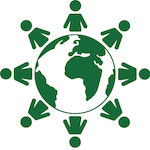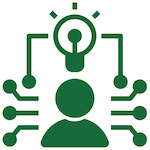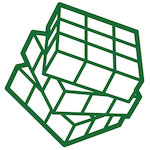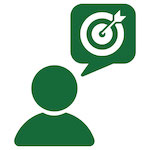Nurturing Successful Relationships
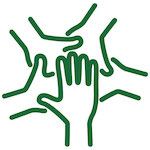 Students who nurture successful relationships describe who they are and can embrace diversity of interpersonal strengths and weaknesses to support positive outcomes with others. They are accountable for their actions, manage conflict, successfully prioritize, and negotiate for successful results.
Students who nurture successful relationships describe who they are and can embrace diversity of interpersonal strengths and weaknesses to support positive outcomes with others. They are accountable for their actions, manage conflict, successfully prioritize, and negotiate for successful results.What this could look like across a program, for a learner, and in a single course:
| When I am learning | When I am ready to work with others | When I am prepared for my career | |
|---|---|---|---|
| What competency development might look like across a program... |
I maintain positive and successful self and social boundaries, and avoid or minimize relationships with risky or negative consequences. I grow relationships with others at different stages of disciplinary knowledge. |
I am accountable for my personal actions and reflect on my personal role in learning and working with others. I can overcome or manage weaknesses and conflict in relationships. |
I focus work to figure out what everyone needs and how to accomplish it together. I negotiate values, principles, goals, and targets, in a context of conflicts of interests, trade-offs, uncertain knowledge and contradictions. |
| What this might look like for a student... | Ami participates in activities at career services to learn how to present himself in an interview versus in his classes. He chooses the things he wants to post on social media to represent him to others and seeks mentor in his discipline. | Ami submitted work late to his group. He talks with the other members and accepts that he contributed to uneven workload when his part came in late to Michaela and delayed her. Ami offers to pick up some work to compensate. | Ami knows what his key career goals are and attends workshops at career services to grow his skills. He makes decisions about how to spend his academic time and time helping his family to balance his goals and his obligations to his family. |
| What this might look like in a course... | Dr. Amin, teaching Organic Chemistry II, helps students develop successful relationships by guiding them to create a group work charter at the beginning of the semester. Each group collaboratively defines their goals, roles, communication norms, conflict resolution strategies, and accountability measures. Dr. Amin facilitates initial team-building activities and workshops on effective communication and conflict resolution. He collects and reviews the charters, provides feedback, and schedules regular check-ins for groups to reflect on their teamwork and make necessary adjustments. This proactive approach ensures students practice clear communication, equitable workload distribution, and conflict management, fostering a supportive and collaborative learning environment. | ||
Undergraduate Student Competency Program Rubrics – utilize or adapt this rubric for programs and courses.
Other ideas for developing this competency in the classroom:
- Reflective Activities: Provide opportunities for students to reflect on their personal boundaries, social interactions, and relationship-building through reflective essays, journals, and class discussions.
- Group Projects: Create group projects that require collaboration and accountability. Ensure each student has a role, and group norms are established to promote effective conflict resolution and relationship management.
- Role-Playing Exercises: Engage students in role-playing scenarios to practice maintaining boundaries and building relationships in a safe, controlled environment.
- Case Studies and Simulations: Use case studies and simulations to analyze and practice negotiating and prioritizing in complex, real-world scenarios.
- Community Partnerships: Integrate service-learning projects that involve working with community partners, requiring students to manage relationships and reflect on their contributions.
- Portfolio Development: Encourage students to develop portfolios that include examples of their work on real-world projects and partnerships, highlighting their ability to manage relationships and negotiate successfully.
Support
The Gwenna Moss Centre for Teaching & Learning
- connect with us to get one-to-one strategies to help learners develop this competency in your classroom. Email for information: gmctl@usask.ca
Career Services
- FUSION Modules: Collaboration, Communication, Self-Management
- Career Readiness Workshop: Self-Marketing
University Library
- Group Work & Collaboration - these tools help facilitate teamwork and interpersonal skills essential for professional relationships. Group projects and collaboration techniques can be incorporated into courses to foster communication and collaborative learning.
- Learning Hub - helps instructors find academic skills resources, tutorials, and other learning support services for students. These resources can be integrated into courses as appropriate to support the development of USask graduate competencies
- Instructors can request workshops and custom materials from learning specialist and librarians tailored to course needs to support the USask graduate competencies.


